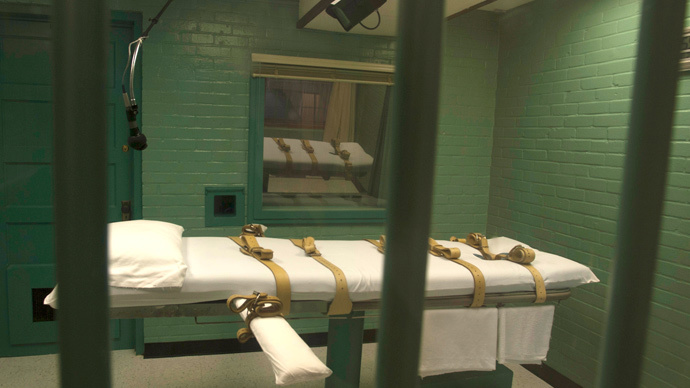Supreme Court upholds lethal injections

The Supreme Court upheld by 5-4 the usage of a sedative called midazolam in drug cocktails used for death penalties in several states. Death row inmates argued the drug failed to block pain and suffering, leading to 'cruel and unusual' executions.
Justice Alito delivered the court’s opinion, joined by judges Scalia, Kennedy, Thomas and Chief Justice Roberts. According to the majority, it is “settled that capital punishment is constitutional,” and therefore there has to be a constitutional method of carrying it out.
“And because some risk of pain is inherent in any method of execution, we have held that the Constitution does not require the avoidance of all risk of pain... After all, while most humans wish to die a painless death, many do not have that good fortune. Holding that the Eighth Amendment demands the elimination of essentially all risk of pain would effectively outlaw the death penalty altogether,” the five judges wrote.
While methods of execution have changed over the years, the Court has “never invalidated a State’s chosen procedure for carrying out a sentence of death as the infliction of cruel and unusual punishment.”
In her dissent, Justice Sotomayor criticized the majority for accepting the District Court’s decision to “credit the scientifically unsupported and implausible testimony of a single expert witness,” and “faulting petitioners for failing to satisfy the wholly novel requirement of proving the availability of an alternative means for their own executions.”
The decision, she wrote, “leaves petitioners exposed to what may well be the chemical equivalent of being burned at the stake.”
Judges Ginsburg, Breyer and Kagan backed Justice Sotomayor’s dissent.
#SCOTUS rules that the death-row inmates have failed to establish a likelihood of success on the merits of their claim. #GlossipvGross
— NPR News (@nprnews) June 29, 2015
Three Oklahoma death-row inmates brought the case, known as Glossip v. Gross, against the state following the botched execution of Clayton D. Lockett in April 2014. They argued that the use of this drug violated the Eighth Amendment of the Constitution, which protects Americans from cruel and unusual punishment.
Lockett, 38, died of a heart attack after his execution went wrong. Prison officials had to cancel the execution, which officially began at 6:23pm, because Lockett was still moving at 6:37 and looked up to say, “something’s wrong.” Visibly writhing in pain, he died 43 minutes after the procedure began.
Doctors burst a vein in Lockett's body while administering the drug cocktail, which was injected locally instead of directly into his bloodstream as a result. An unknown amount of the drugs was absorbed into his body.
The plaintiffs argued the sedative midazolam, used by Oklahoma during executions, was not strong enough to knock inmates completely unconscious and thus protect them from pain during the procedure. Additionally, the lawsuit stated that since midazolam was not considered effective enough to use in surgery, it should not be used for lethal injections.












